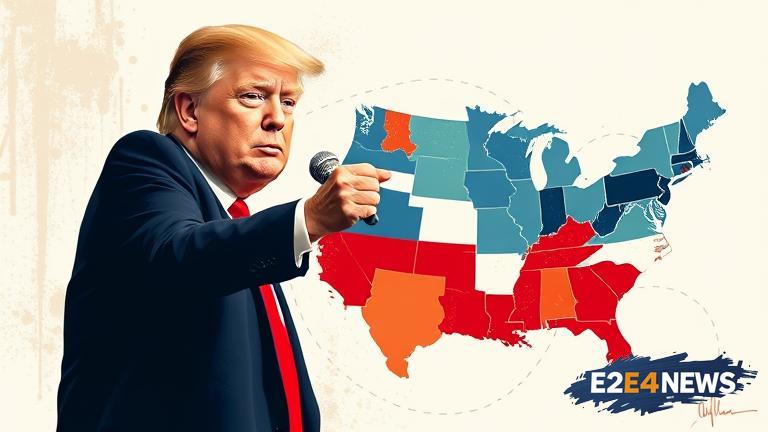The Trump administration has been actively pursuing its trade agenda, with a focus on renegotiating existing trade deals and imposing tariffs on imported goods. This approach has been met with both praise and criticism, as some argue that it will help to protect American industries and jobs, while others claim that it will lead to a trade war and harm the economy. One of the key components of Trump’s trade agenda is the pursuit of bilateral trade deals, which the administration believes will allow for more favorable terms and greater control over the negotiation process. The administration has already begun negotiations with several countries, including Canada, Mexico, and China, and has imposed tariffs on imported goods such as steel and aluminum. The use of tariffs has been a key tool in Trump’s trade policy, with the aim of protecting American industries and reducing the trade deficit. However, this approach has been met with resistance from other countries, which have retaliated with their own tariffs on American goods. The trade tensions between the US and China have been particularly notable, with both countries imposing tariffs on each other’s goods and engaging in a war of words over trade policy. Despite the challenges, the Trump administration remains committed to its trade agenda, with the goal of creating a more level playing field for American businesses and workers. The administration has also been working to strengthen trade relationships with other countries, including the European Union and Japan, and has been exploring new trade agreements with countries such as the United Kingdom and Brazil. The impact of Trump’s trade agenda on the economy is still unclear, but it is likely to have significant implications for American businesses and workers. Some industries, such as manufacturing and agriculture, may benefit from the tariffs and trade deals, while others, such as retail and technology, may be harmed. The trade agenda has also been the subject of controversy, with some critics arguing that it is protectionist and will lead to a trade war, while others argue that it is necessary to protect American industries and jobs. The administration has also faced criticism for its handling of trade negotiations, with some arguing that it has been too aggressive and confrontational. Despite these challenges, the Trump administration remains committed to its trade agenda, and it will be important to monitor its progress and impact in the coming months and years. The trade agenda is also likely to be a major issue in the upcoming election, with both Democrats and Republicans weighing in on the issue. Overall, Trump’s trade agenda represents a significant shift in American trade policy, and its impact will be felt for years to come. The administration’s approach to trade has been shaped by its ‘America First’ philosophy, which prioritizes the interests of American businesses and workers above all else. This approach has been met with both praise and criticism, and it remains to be seen how it will play out in the long term. As the trade agenda continues to evolve, it will be important to monitor its progress and impact, and to consider the potential implications for the economy and American businesses and workers.
